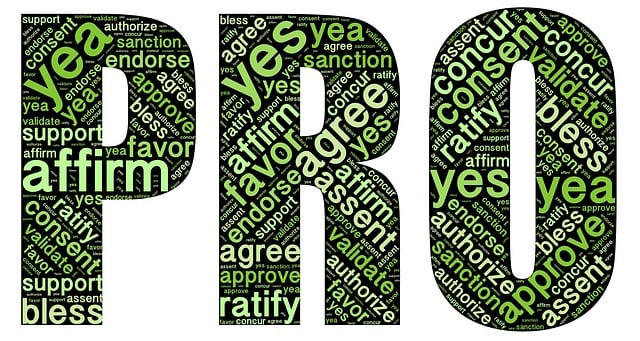In the UK healthcare system, multilingual patients face significant barriers understanding clinical consent forms due to language differences, posing risks to their safety and treatment outcomes. Professional translation services play a vital role in overcoming these challenges by accurately translating Informed Consent Forms (ICFs), fostering trust between patients and providers, and ensuring equal access to quality healthcare. With strict legal mandates for informed consent, digital solutions are crucial to streamline processes, reduce errors, and enhance patient care. Translation services for ICFs UK, led by expert translators skilled in medical jargon and cultural nuances, save time, resources, and mitigate potential misunderstandings or legal complications. Precision is paramount, adhering to regulations from authorities like the MHRA, ensuring accurate communication of critical information in multiple languages.
In the UK healthcare sector, ensuring clinical consent forms align with local regulations is paramount. With increasing cross-border patient care and diverse linguistic backgrounds, understanding the nuances of Informed Consent Forms (ICFs) becomes essential. This article explores the critical aspects of ICFs in the UK, including legal requirements, the challenges posed by traditional paper forms, and how translation services can enhance accuracy and compliance, especially for international patients and healthcare providers. Discover the benefits of modernizing your consent processes with professional translation solutions tailored for the UK market.
- Understanding Clinical Consent Forms in the UK
- The Legal Requirements for Informed Consent
- Challenges with Traditional Paper Forms
- Benefits of Using Professional Translation Services
- Ensuring Accuracy and Compliance through Translation
Understanding Clinical Consent Forms in the UK

In the UK, clinical consent forms play a critical role in ensuring patient rights and safety during medical procedures. These legal documents establish a clear understanding between healthcare providers and patients about the treatment or research involvement. Informed consent means that patients are fully aware of their options, potential risks, benefits, and alternatives before agreeing to any procedure. It’s a shared decision-making process where patients have the right to ask questions and receive comprehensive explanations.
For multicultural and multilingual settings within the UK healthcare system, accessing and understanding clinical consent forms can be more complex. Translation services for informed consent forms become essential tools to bridge this gap. Professional translation ensures that all patients, regardless of their linguistic background, can comprehend the form’s content accurately. This not only promotes patient safety but also enhances trust and respect within diverse healthcare environments.
The Legal Requirements for Informed Consent

In the UK, the legal requirements for informed consent are stringent and must be adhered to strictly. Clinical practices and healthcare providers are responsible for obtaining valid consent from patients before any treatment or procedure is carried out. This process involves ensuring the patient understands their rights, the nature of the proposed treatment, potential risks and benefits, and any alternative options available. The ability to communicate effectively with patients, often involving translation services for informed consent forms UK, is vital to achieving this.
Translation services play a crucial role in facilitating clear communication between healthcare professionals and patients who may not share the same first language. Accurate translations of consent forms ensure that every patient fully comprehends their rights and responsibilities, enabling them to make informed decisions about their health. This legal requirement not only upholds patient autonomy but also safeguards healthcare providers from potential legal complications arising from misunderstandings or errors in translation.
Challenges with Traditional Paper Forms

In today’s digital age, clinical consent forms are often seen as a necessary yet cumbersome aspect of healthcare administration. Traditional paper forms present several challenges that can impact efficiency and patient experience. One significant issue is language barriers, especially in diverse healthcare settings across the UK. With an increasing multicultural population, ensuring that informed consent forms are accessible to patients from various linguistic backgrounds is crucial. This often requires complex translation processes, highlighting the need for professional translation services for Informed Consent Forms UK.
Additionally, paper forms can be time-consuming to complete, leading to delays in patient treatments and procedures. They are also prone to errors, as they require careful manual filling and potential rechecking by healthcare professionals. These challenges underscore the importance of digital solutions and standardized electronic consent forms, which can streamline processes, reduce human error, and improve overall patient care.
Benefits of Using Professional Translation Services

Using professional translation services for informed consent forms in the UK brings numerous advantages. Firstly, it ensures precision and accuracy in communication with multilingual patients or healthcare providers. Mistranslations can lead to misunderstandings or even legal complications, so having a reliable service safeguard against such issues is vital.
Additionally, professional translators are familiar with medical jargon and cultural nuances, which is crucial for maintaining the integrity of the form’s content. This specialised knowledge helps convey complex information clearly and appropriately, enhancing patient understanding and consent quality. Translation services also save time and resources compared to in-house translation or relying on non-specialists, enabling healthcare organisations to efficiently manage their documentation processes.
Ensuring Accuracy and Compliance through Translation

Ensuring your clinical consent forms are accurate and compliant is paramount when navigating healthcare regulations in the UK. One often overlooked yet critical aspect is translation, especially for practices serving a diverse patient population. Professional translation services play a vital role in ensuring that informed consent forms accurately convey essential information in multiple languages.
When it comes to Translation services for Informed Consent Forms UK, accuracy is non-negotiable. Medical terminology can be complex and nuanced; thus, only qualified translators with expertise in both the source and target languages should handle these documents. Compliance with UK regulations, such as those set by the Medicines and Healthcare products Regulatory Agency (MHRA), requires precise translations that maintain the original intent and meaning of the form.
In light of the above discussions, it’s clear that navigating clinical consent forms in the UK requires a deep understanding of legal requirements and an eye for detail. To ensure accuracy and compliance, especially with a diverse patient population, leveraging professional translation services for Informed Consent Forms UK is no longer a choice but a necessity. These services not only address challenges posed by traditional paper forms but also streamline the process, fostering better patient care and legal protection.



